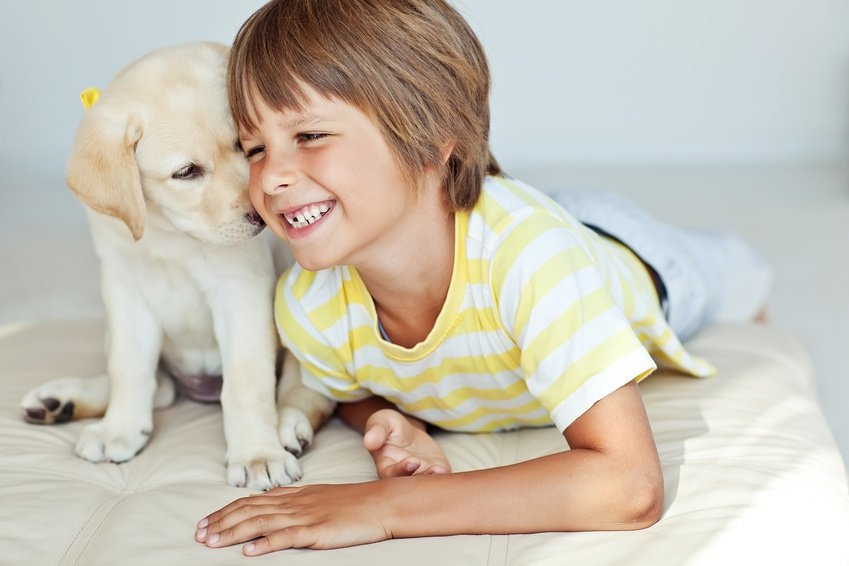Kids get more satisfaction from relationships with their household pets than with their brothers or sisters, new research suggests.
“Anyone who has loved a childhood pet knows that we turn to them for companionship and disclosure, just like relationships between people,” said lead researcher Matt Cassells from University of Cambridge.
“We wanted to know how strong these relationships are with pets relative to other close family ties. Ultimately this may enable us to understand how animals contribute to healthy child development,” Cassells said.
Researchers surveyed children of 12 years of age from 77 families with one or more pets of any type and more than one child at home.
The children reported strong relationships with their pets relative to their siblings, with lower levels of conflict and greater satisfaction in owners of dogs than other kinds of pets.
“Even though pets may not fully understand or respond verbally, the level of disclosure to pets was no less than to siblings,” Cassels said.
“The fact that pets cannot understand or talk back may even be a benefit as it means they are completely non-judgmental,” Cassels noted.
While previous research had often found that boys report stronger relationships with their pets than girls do, the new research actually found the opposite.
“While boys and girls were equally satisfied with their pets, girls reported more disclosure, companionship, and conflict with their pet than did boys, perhaps indicating that girls may interact with their pets in more nuanced ways,” Cassels noted.
The research, published in the Journal of Applied Developmental Psychology, adds to increasing evidence that household pets may have a major influence on child development, and could have a positive impact on children’s social skills and emotional well-being.
Kids get more satisfaction from relationships with their household pets than with their brothers or sisters, new research suggests.
“Anyone who has loved a childhood pet knows that we turn to them for companionship and disclosure, just like relationships between people,” said lead researcher Matt Cassells from University of Cambridge.
“We wanted to know how strong these relationships are with pets relative to other close family ties. Ultimately this may enable us to understand how animals contribute to healthy child development,” Cassells said.
Researchers surveyed children of 12 years of age from 77 families with one or more pets of any type and more than one child at home.
The children reported strong relationships with their pets relative to their siblings, with lower levels of conflict and greater satisfaction in owners of dogs than other kinds of pets.
“Even though pets may not fully understand or respond verbally, the level of disclosure to pets was no less than to siblings,” Cassels said.
“The fact that pets cannot understand or talk back may even be a benefit as it means they are completely non-judgmental,” Cassels noted.
While previous research had often found that boys report stronger relationships with their pets than girls do, the new research actually found the opposite.
“While boys and girls were equally satisfied with their pets, girls reported more disclosure, companionship, and conflict with their pet than did boys, perhaps indicating that girls may interact with their pets in more nuanced ways,” Cassels noted.
The research, published in the Journal of Applied Developmental Psychology, adds to increasing evidence that household pets may have a major influence on child development, and could have a positive impact on children’s social skills and emotional well-being.















